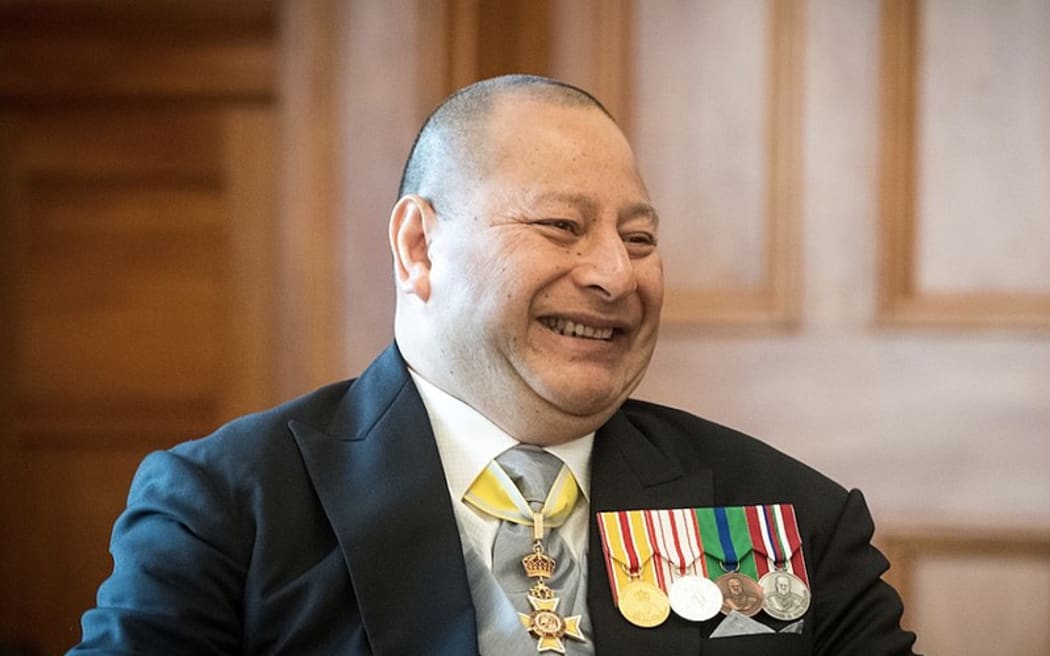World
Tonga’s King Takes Charge of Foreign Affairs and Defence

The Tongan Parliament has passed a controversial bill that transfers control of the Ministry of Foreign Affairs and the Ministry of Defence to King Tupou VI. This legislative move, enacted under urgent circumstances, has sparked significant debate regarding the future of democratic governance in Tonga. The new structure will see the foreign affairs ministry rebranded as His Majesty’s Diplomatic Services and overseen directly by the King.
The decision, made on March 4, 2024, was presented as a means to “modernise and strengthen the framework for the conduct and implementation of diplomatic and consular relations.” Supporters claim it will enhance the oversight of immigration and align diplomatic efforts with national interests. However, critics view this shift as a regression from the democratic reforms established in 2010 when parliamentary control was strengthened.
Under the new arrangement, the Crown Prince Tupouto’a ‘Ulukalala will oversee the newly formed diplomatic service, effectively transferring responsibilities from the Cabinet to the monarchy. This transition raises questions about the future role of the Tongan Parliament and the potential for further centralisation of power.
According to RNZ Pacific correspondent Kalafi Moala, the urgency of the bill’s passage surprised many in the public. “The law was brought in as an emergency law, or urgent, and it was passed without debate and no opposition,” he stated. This lack of discussion within the parliament has led to widespread concern about the implications of such a significant change in governance.
The shift in control appears to stem from dissatisfaction expressed by the King towards former Prime Minister Sovaleni, who resigned from his roles as Minister of Defence and Minister of Foreign Affairs under pressure. Now, with the new government, the decision to place these ministries under royal jurisdiction has been formalised.
The Ministry of Defence has traditionally operated under the King’s authority, but the previous arrangement allowed for a Cabinet-appointed minister to oversee operations. Under the new law, appointments for both the Minister of Foreign Affairs and the Minister of Defence will be made directly by the King, further consolidating royal influence over national security and diplomatic relations.
Some observers speculate that this move is a response to previous allegations of misuse of funds, particularly concerning foreign aid. By shifting these responsibilities to the palace, the King will now directly manage all diplomatic relations and resources coming from abroad.
As funding for the new diplomatic service will be drawn from the national budget, concerns have arisen regarding transparency and oversight. Critics argue that this change undermines the parliamentary budgetary process, effectively placing financial control in the hands of the monarchy rather than elected representatives.
The response from the public has been swift and vocal. A petition opposing the legislation is currently being circulated, urging the King not to sign the bill into law. The petition has garnered support primarily from members of the Democratic Party and followers of the late Akilisi Pohiva, a prominent advocate for democratic reforms in Tonga.
Moala highlighted the discontent among the populace, stating, “What a lot of people are afraid of is it seems to be a regression or a reverse of what happened in the pathway to democracy.” This sentiment reflects the unease many feel regarding the potential erosion of democratic principles in Tonga.
The recent legislative changes have raised alarms not only about the specific powers being transferred to the monarchy but also about the broader implications for governance in Tonga. The decision to bypass parliamentary debate has left many questioning the future dynamics between the monarchy and the elected government.
As Tonga navigates this significant political shift, the implications for its democratic framework and international relations remain to be seen. The situation is evolving, and the response from both the royal palace and the public will likely shape the trajectory of governance in the kingdom.
-

 World3 months ago
World3 months agoTest Your Knowledge: Take the Herald’s Afternoon Quiz Today
-

 Sports3 months ago
Sports3 months agoPM Faces Backlash from Fans During Netball Trophy Ceremony
-

 Lifestyle3 months ago
Lifestyle3 months agoDunedin Designers Win Top Award at Hokonui Fashion Event
-

 Sports3 months ago
Sports3 months agoLiam Lawson Launches New Era for Racing Bulls with Strong Start
-

 Lifestyle3 months ago
Lifestyle3 months agoDisney Fan Reveals Dress Code Tips for Park Visitors
-

 Health3 months ago
Health3 months agoWalking Faster Offers Major Health Benefits for Older Adults
-

 World3 months ago
World3 months agoCoalition Forms to Preserve Māori Wards in Hawke’s Bay
-

 Politics3 months ago
Politics3 months agoScots Rally with Humor and Music to Protest Trump’s Visit
-

 Top Stories3 months ago
Top Stories3 months agoUK and India Finalize Trade Deal to Boost Economic Ties
-

 Entertainment3 months ago
Entertainment3 months agoExperience the Excitement of ‘Chief of War’ in Oʻahu
-

 World3 months ago
World3 months agoHuntly Begins Water Pipe Flushing to Resolve Brown Water Issue
-

 Science3 months ago
Science3 months agoNew Interactive Map Reveals Wairarapa Valley’s Geological Secrets









